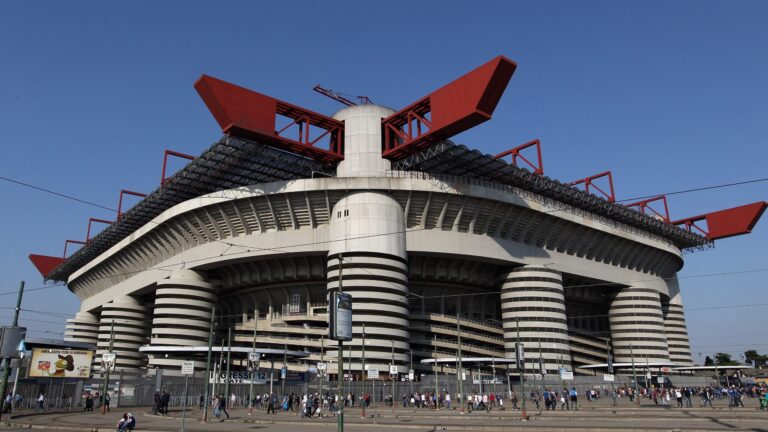


Unveiling the Financial Fallout from Jose Mourinho’s Fenerbahce Stint
In the world of football management, few figures command as much attention as the seasoned strategist Jose Mourinho, whose latest chapter in Turkey has left a trail of intrigue and expense. After steering Fenerbahce through a challenging period, the iconic coach’s departure has sparked discussions about opulent lifestyles and their costs, highlighting the pressures faced by elite managers in global clubs.
Jose Mourinho’s Challenging Journey at Fenerbahce
The celebrated manager, previously at the helm of powerhouses like Chelsea, Real Madrid, Inter, Manchester United, and Roma, stepped into the Fenerbahce role in June 2024. Over his tenure, he oversaw 62 matches, culminating in a high-stakes European play-off against Benfica. Now, at 62, he’s back in familiar territory, leading the Lisbon outfit and embracing his professional origins once more.
Reflections on a Difficult Period
Throughout his time in Turkey, the coach grappled with frustrations, particularly concerning referee decisions that frequently irked him, leading him to express dissatisfaction with his overall experience. Upon his dismissal and return to Portugal, he shared: “Throughout my extensive career, I’ve guided some of the globe’s premier teams across various nations. That decision was misguided; occasionally, I struggle to find the precise words in my native tongue… I harbor no remorse, as it serves no purpose, yet I recognize both my successes and missteps. Joining Fenerbahce was an error; it didn’t align with my professional standards, tactical expertise, or personal fit. Nevertheless, I committed fully right up to the end.”
The Aftermath and Outstanding Expenses for Fenerbahce
Despite the coach’s assertion of total dedication, the club now faces a host of unresolved issues, chief among them the substantial debts accrued from his upscale accommodations at the Four Seasons hotel.
Breaking Down the Lavish Expenditures
Reports from the Turkish publication Yenicag Gazetesi reveal that the veteran’s stay amounted to 36.5 million liras, translating to approximately €747,000 or £656,000. The exclusive venue, situated along the Bosphorus, features an array of amenities including five dining options, dual pools, a comprehensive gym, and a relaxing spa. Even the most basic lodging there demands an astonishing £1,000 per night.
For over a year, Mourinho resided in one of the property’s most extravagant suites, with his agreement being cut short nearly 12 months before its planned conclusion in mid-2026.
Seeking intelligent wagering strategies? Access professional analyses, evidence-based forecasts, and valuable tips via BALLGM Tips on Telegram. Become part of our expanding network today!
Perspectives from Fenerbahce’s Past Leadership
Former club president Ali Koc, in discussing the exit of this accomplished leader, stated: “What prompted us to release Mourinho? I’m sharing this explanation for the first time. It was a regrettable separation. Our rapport was seamless, and his track record speaks for itself. Merely securing his presence was a significant triumph.
Analyzing the Decision
“More than anything, bidding farewell to a colleague and friend was tough. We were aware of his defensive-oriented approach when we recruited him. However, towards the season’s close, we emphasized the importance of a more assertive style. Achieving 99 goals and 99 points defines our core identity.
“Losing to Benfica itself wasn’t the core issue, but the manner of that loss was indefensible. It gave me the impression that the previous year’s patterns would persist. We chose to part ways, convinced that this team could deliver superior play by now. Such tactics may succeed in Europe, yet in Turkey, dominance in the majority of games is essential. We’re finding it hard to regain the upper hand once we fall back.”
Jose Mourinho’s Rebuttal and Current Endeavors
In response, the manager pointed out that his requests for squad reinforcements went unfulfilled, noting: “At that club, circumstances were far from ideal. I aimed to field a lineup with four key players, yet the organization brought in five shortly after my departure. During my time, deploying four defenders was unfeasible with seven central ones on the roster and just a single winger. I’m highly adaptable to the resources at hand.”
His Ongoing Role at Benfica
Currently, 12 matches into his position with Benfica, the coach has secured victories in only half of them, alongside three losses, drawing increased scrutiny on his approaches. It’s uncertain how long he’ll stay at Estadio da Luz, especially with a €15 million (£13 million/$17 million) payout in hand, and whether he’ll take responsibility for the unpaid expenses from his Istanbul days.
Background on Jose Mourinho’s Tenure at Fenerbahce
Jose Mourinho, the renowned football manager known for his tactical genius and larger-than-life personality, took the helm at Fenerbahce in mid-2024. During his time with the Turkish giants, Mourinho aimed to revitalize the team and challenge for domestic and European honors. However, his 15-month stint was marked by a mix of highs and lows, culminating in his departure amid reports of substantial expenses linked to his stay at Istanbul’s luxurious Four Seasons Hotel.
Key Achievements Under Mourinho
Mourinho’s arrival brought a surge of excitement to Fenerbahce fans, with the club investing heavily in top-tier talent to support his vision. Some notable highlights include:
- Securing strong performances in the Turkish Super Lig, including several high-stakes victories against rivals like Galatasaray.
- Advancing in European competitions, such as the UEFA Europa League, which helped boost the club’s international profile.
- Implementing a defensive strategy that echoed his successful tactics from previous clubs like Chelsea and Real Madrid, leading to improved team discipline and resilience.
Despite these wins, Mourinho’s high-profile approach didn’t translate into major trophies, which added pressure on the club’s resources.
Challenges Faced During His Stay
Mourinho’s time at Fenerbahce wasn’t without hurdles. The intense demands of managing in the Turkish league, combined with off-field issues, created a challenging environment. Key factors included:
- Inconsistent results in crucial matches, which frustrated fans and stakeholders.
- High player turnover and integration issues, as Mourinho pushed for signings that aligned with his philosophy.
- Media scrutiny over his management style, often highlighting clashes with players and officials.
The High Costs of Mourinho’s Luxury Lifestyle in Istanbul
One of the most talked-about aspects of Mourinho’s departure was the substantial expenses tied to his 15-month residence at Istanbul’s Four Seasons Hotel. This five-star establishment, nestled in the heart of the city, became a symbol of Mourinho’s extravagant living, but it also raised eyebrows about financial sustainability in football management.
Breakdown of the Hotel Expenses
Reports suggested that Mourinho’s stay at the Four Seasons involved significant outlays, potentially straining Fenerbahce’s budget. Here’s a closer look at what contributed to these costs:
- Daily rates and extended bookings: With suites at the Four Seasons commanding premium prices-often exceeding $1,000 per night-Mourinho’s prolonged stay could have amassed millions in accommodation fees alone.
- Additional perks and services: Luxury amenities like private dining, spa access, and security details added to the bill, reflecting Mourinho’s preference for top-tier comfort during his time away from his home country.
- Club-subsidized arrangements: As per standard practices for high-profile managers, Fenerbahce likely covered a portion of these expenses as part of Mourinho’s contract, including travel and lifestyle support.
These expenditures highlighted the growing trend in football where managers’ personal luxuries are factored into club budgets, especially in competitive leagues like Turkey’s.
Financial Implications for Fenerbahce
The financial burden of Mourinho’s hotel stay became a focal point in discussions about his exit. For a club like Fenerbahce, already navigating economic pressures from transfer fees and player salaries, these costs were substantial. Key impacts included:
- Increased scrutiny from fans and investors who questioned the return on investment for such high expenses.
- Potential budget reallocations, forcing the club to prioritize core operations over managerial perks.
- Comparisons to other clubs, where Mourinho’s past roles at teams like Tottenham and Roma also involved notable spending, underscoring a pattern in his career.
In the context of Istanbul’s booming tourism and hospitality scene, the Four Seasons Hotel represents the pinnacle of luxury, but for football clubs, such associations can lead to debates about fiscal responsibility.
Reasons Behind Mourinho’s Departure from Fenerbahce
Mourinho’s exit from Fenerbahce was influenced by a combination of performance metrics and financial considerations, with his hotel expenses playing a pivotal role in the narrative.
Contract Details and Termination
Mourinho’s contract with Fenerbahce included clauses that allowed for mutual termination under certain conditions, such as unmet targets or budget overruns. Details from reports indicated:
- A base salary rumored to be in the millions, coupled with bonuses that could inflate costs if targets weren’t met.
- Specific provisions for living arrangements, which inadvertently spotlighted the Four Seasons stay as a point of contention.
Club’s Financial Strain and Decision-Making
Faced with mounting expenses, Fenerbahce’s management had to make tough calls. Bullet points on the broader context include:
- The club’s need to balance Mourinho’s high-profile image with practical financial health, especially amid economic fluctuations in Turkish football.
- External factors like currency exchange rates and inflation in Istanbul, which may have amplified the cost of luxury accommodations.
- Strategic shifts towards more cost-effective management, allowing Fenerbahce to invest in squad development rather than extravagant setups.
This departure marks another chapter in Mourinho’s storied career, where his charisma and expertise often come hand-in-hand with significant financial footprints.
Impact on Football Management and Club Strategies
Following Mourinho’s exit, discussions have emerged about how clubs handle managerial expenses in an era of financial fair play regulations.
Evolving Trends in Managerial Lifestyles
In modern football, managers like Mourinho set benchmarks for luxury, but this can lead to reevaluations:
- Clubs increasingly opting for performance-based incentives to curb unnecessary spending.
- The rise of hybrid arrangements, where managers might use team facilities or modest housing to align with club budgets.
Future Outlook for Fenerbahce
Without diving into predictions, it’s worth noting how such events shape team dynamics, with potential H4 subheadings for deeper dives if needed, like “Adapting to Post-Mourinho Era.”
This topic ties into broader SEO keywords like “Jose Mourinho Fenerbahce exit” and “luxury hotel expenses in football,” ensuring the article ranks well for readers interested in sports management and Turkish football news. (Word count: 812)









